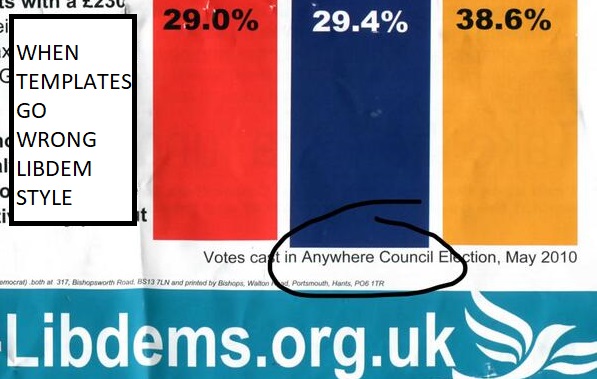While at the time of writing the outcome of the 2019 General Election remains in doubt one thing is already clear: the Liberal Democrat strategy for the election is a catastrophic failure.
It is worth remembering that the main reason we are having this election in December is that the Liberal Democrats and the Scottish Nationalists thought they spotted an opportunity to strengthen their representation and forward their own agenda. True that there would have been an election soon enough, but there was a strong argument that seeking to resolve Brexit and deliver a referendum on the withdrawal agreement before the 2017 Parliament was dissolved would have been a better course to resolving Brexit. Whether the SNP strategy will succeed is hard to predict but it seems the Liberal Democrat plans have come a cropper.
There are three reasons for this failure:
Revoke
Carried away on their limited success in the European Elections in May, the LibDems sought to position themselves as the most pro-European of the UK political parties. Having carried out a leadership election to replace the retiring Vince Cable, they had chosen the little-known Scottish MP, Jo Swinson, as their leader. At their conference in September they backed a policy of ‘cancelling Brexit’ by revoking Article 50 after a general election. The policy meant that the LibDems broke the unity that had built up across pro-remain politicians around the proposition that any Brexit deal, being at odds with many of the promises made by ‘leave’ advocates during the 2016 referendum, should be put back to the people. This policy had been regarded as democratically unsustainable by Cable, but was backed by Swinson as a continuation of the ‘clear message’ of ‘stopping Brexit’ peddled in the European Elections that had won a 19% share - 3.3 million votes. The ‘revoke’ position was patently all about winning LibDem votes and nothing to do with the practicalities of ‘stopping Brexit’ while the election is clearly about more than Brexit - however some might wish otherwise.
Majority
The second reason; the ludicrous claim made by Ms Swinson that she was likely to become the next Prime Minister. The Liberal Party and their LidDem successors have made similar claims from time to time and every time it has failed to come about - it’s a claim that, under the UK’s manifestly unfair first past the post system, is utterly ridiculous. Rolling it out did damage in several ways. Ms Swinson made herself look silly; the policy itself was further undermined as it was contingent on a LibDem majority that just wasn’t happening; and the LibDems looked to be putting party before country. This was all underlined in the far-fetched pre-election talk of ‘caretaker governments’ when Ms Swinson’s refused to countenance even a temporary administration led by the Leader of the Opposition, acting as a timely reminder of her own role as a junior minister in propping up the Cameron government in its first term.
Leader
Finally, whatever the failings of LibDem strategy, the elements of which have either been promoted or endorsed by their leader, Ms Swinson also appears to be unpopular with much of the electorate. To get into a long discussion Ms Swinson’s persona would be subjective and unfair. Besides the reasons behind her failures are political. While little succeeds like success, the LibDems recent successes have not really been hers. The judgement behind policy changes and their presentation certainly were. Her assertions have been seen as implausible, opportunist and partisan; at odds with the notion of the LibDems as a somehow ‘non party political’ (while this is something those in politics have always found at odds with reality, it was undeniably an inexplicable element of their wider appeal as ‘not the other two’). Her presentation has been flawed and on policy, shallow. Combined with the manifest dissembling behind the LibDem presentation of ‘selective’ figures and dubious polls all too painfully exposed by a media for which she was ill prepared, Ms Swinson was fatally undermined even before her unconvincing indications on the options in a hung Parliament.
These errors of judgement don’t inspire confidence. One has to conclude from this that the LibDems haven’t learned very much from their time in government nor from what happened next. They have exposed the LibDems for what they are and are likely to remain - a mid-term protest vote.



